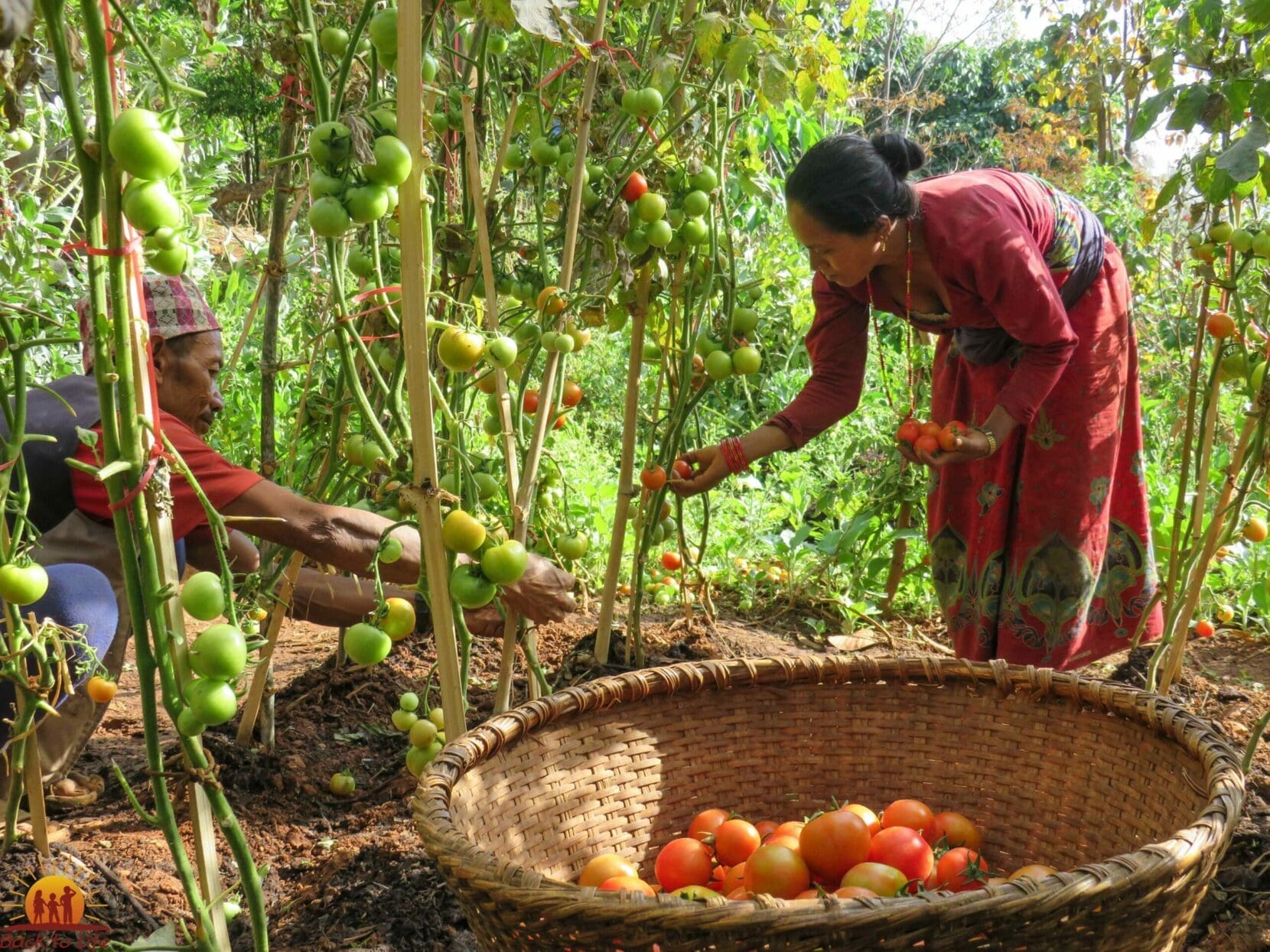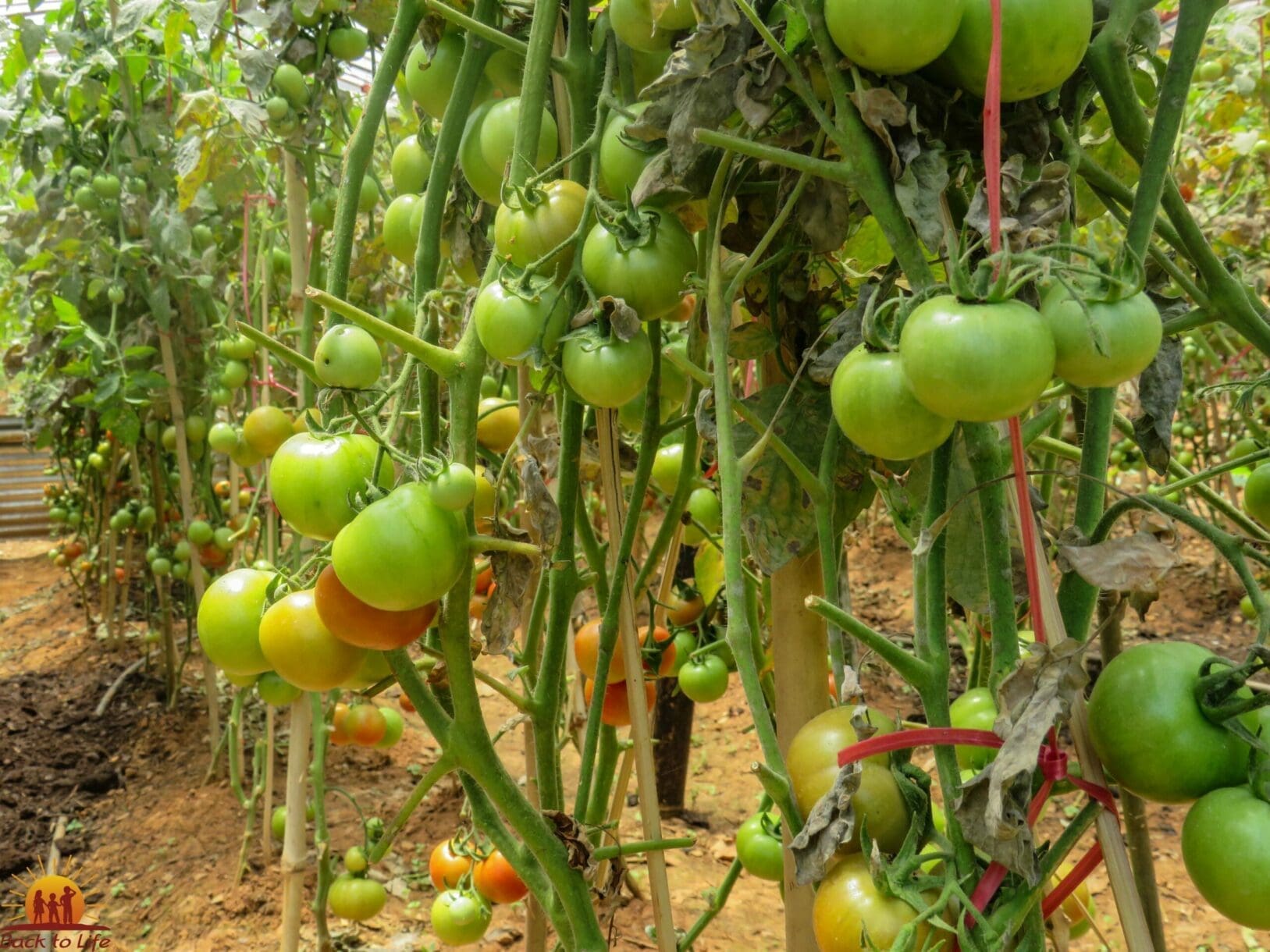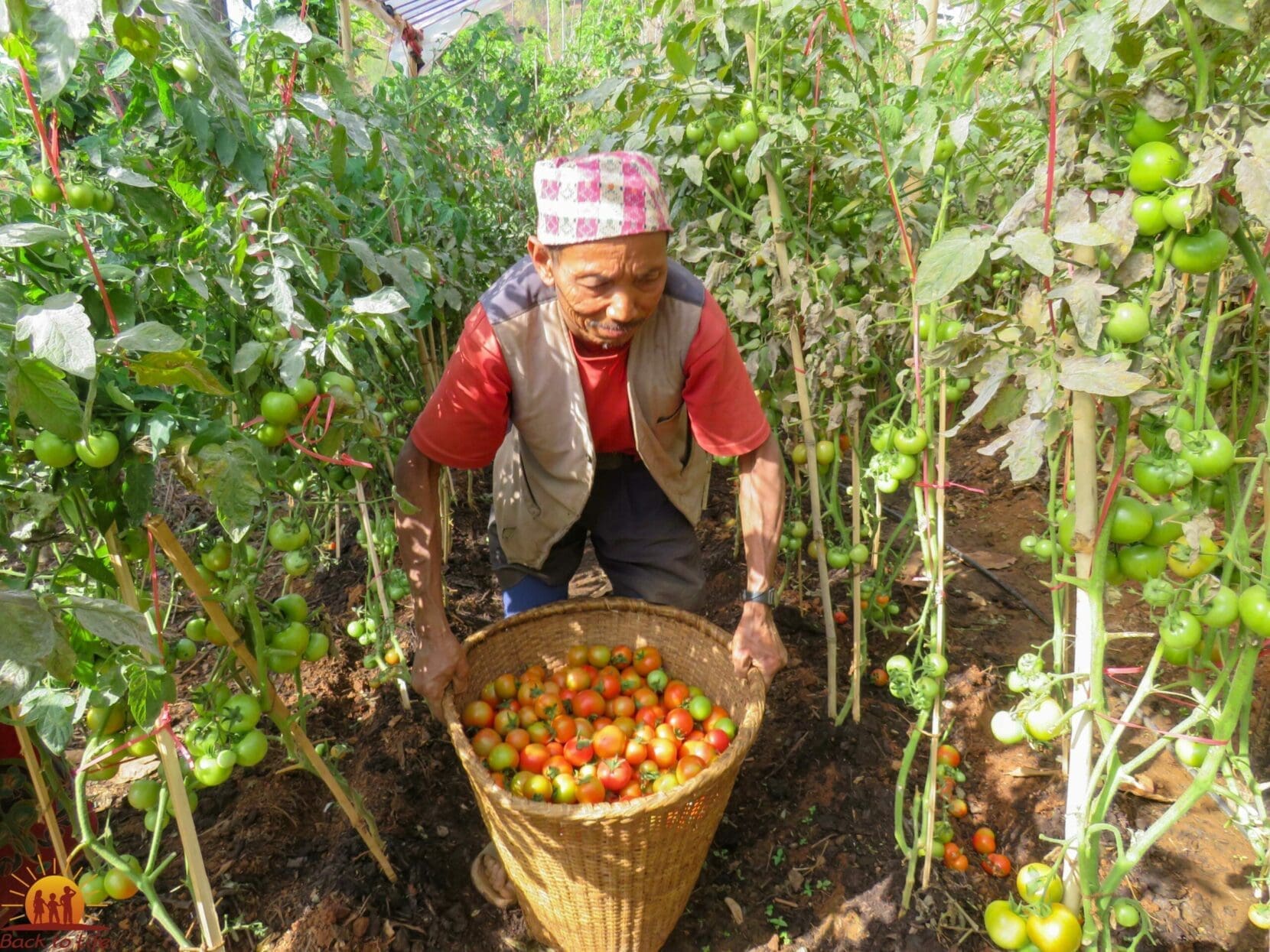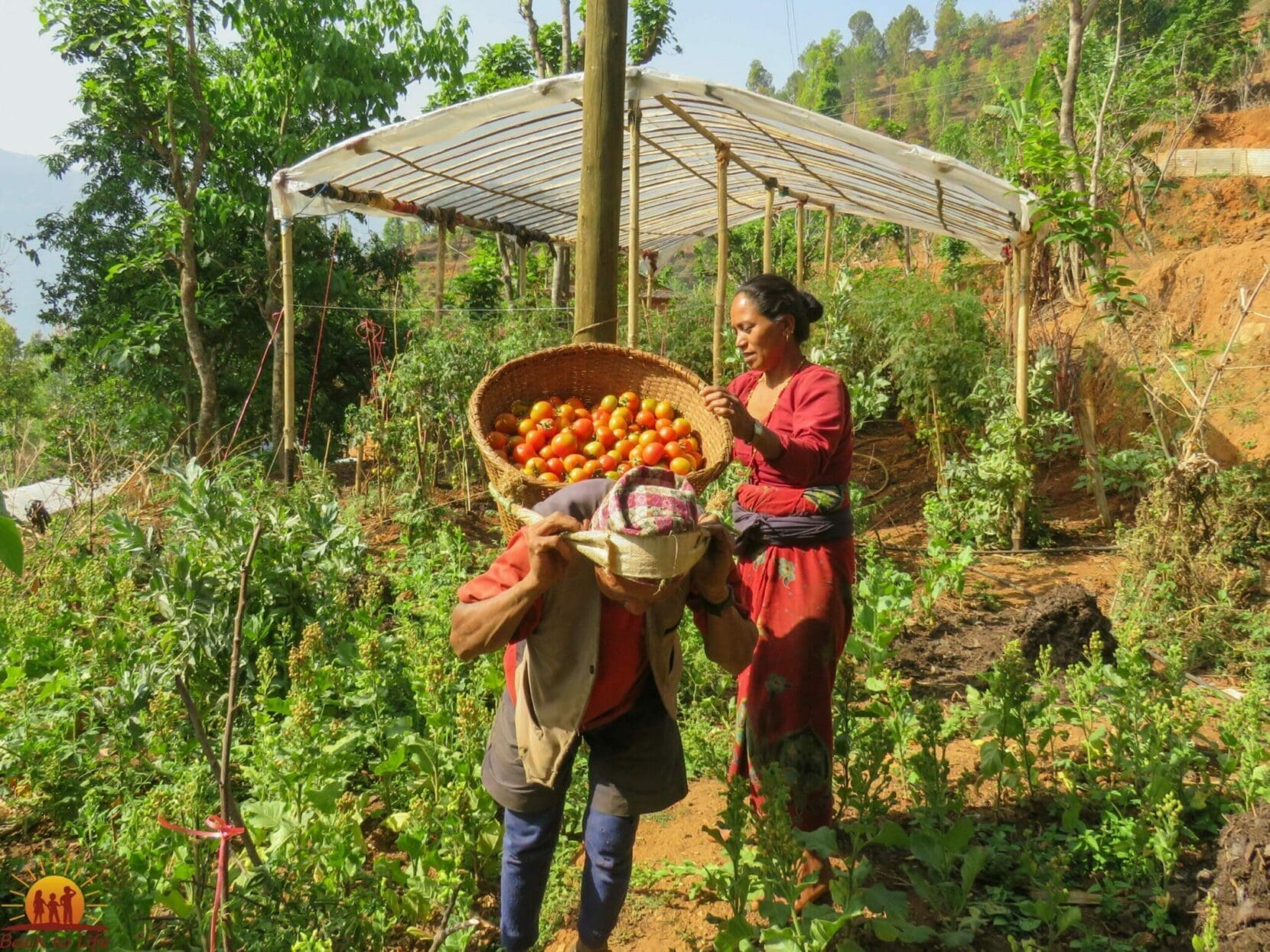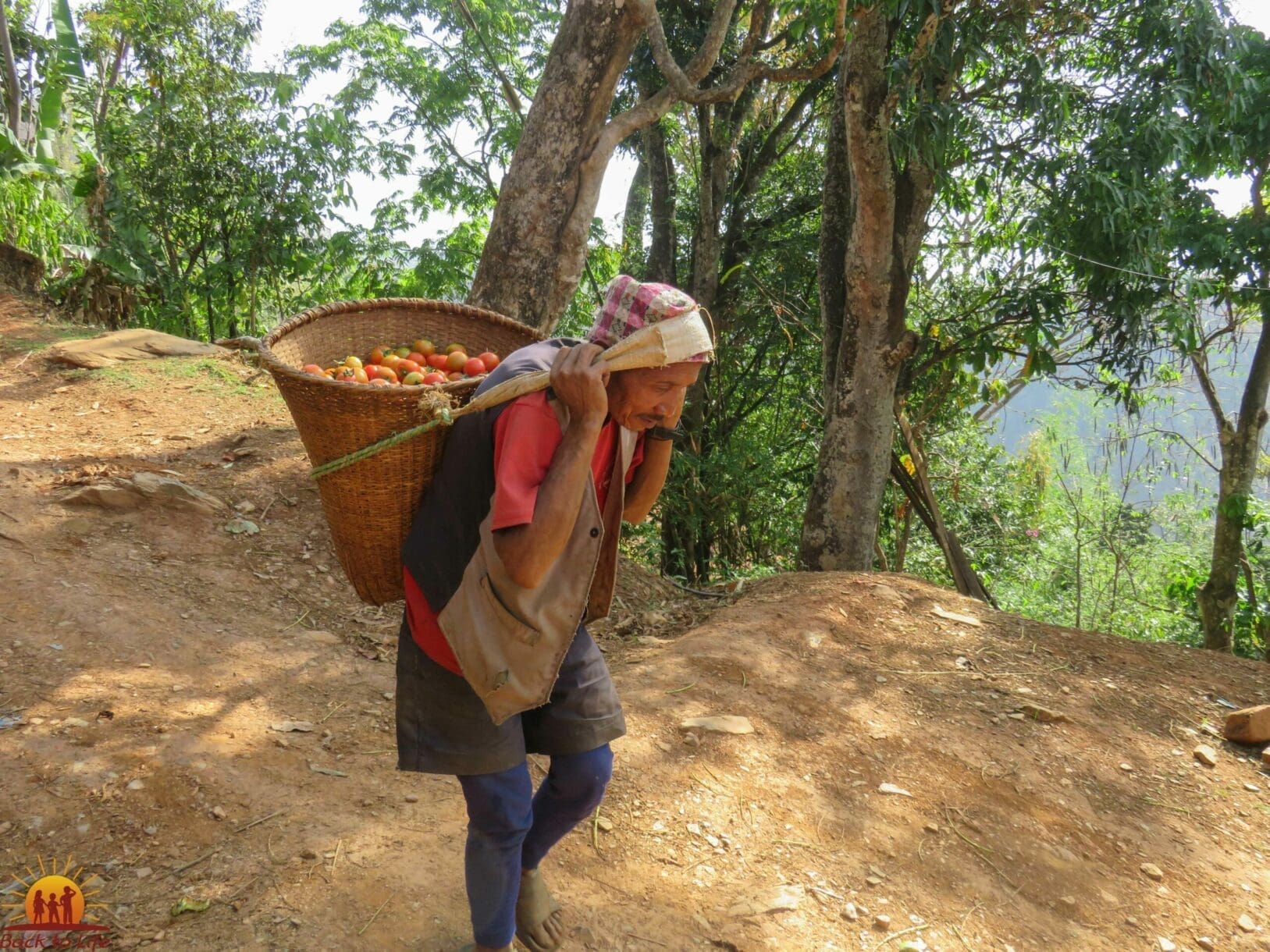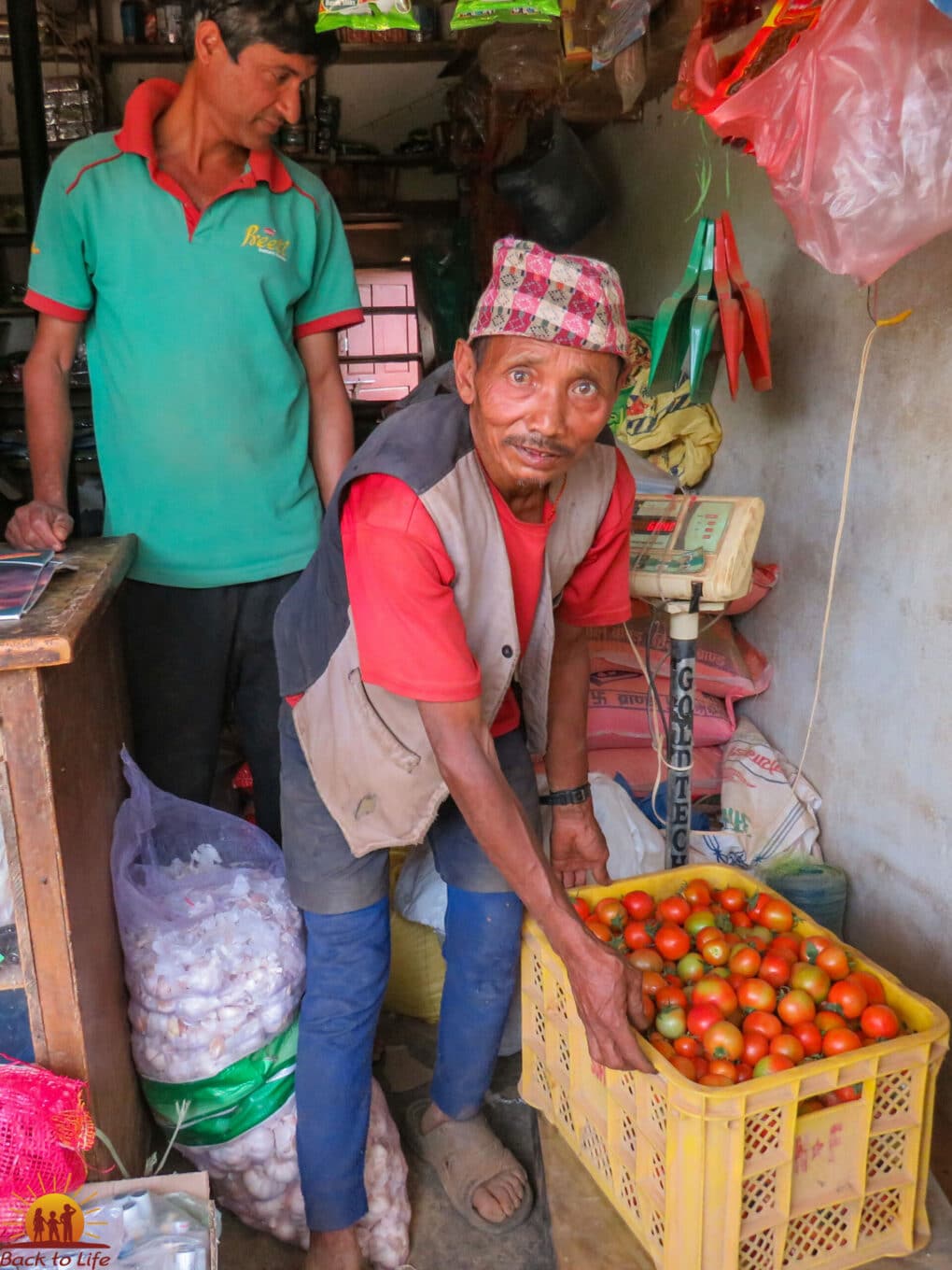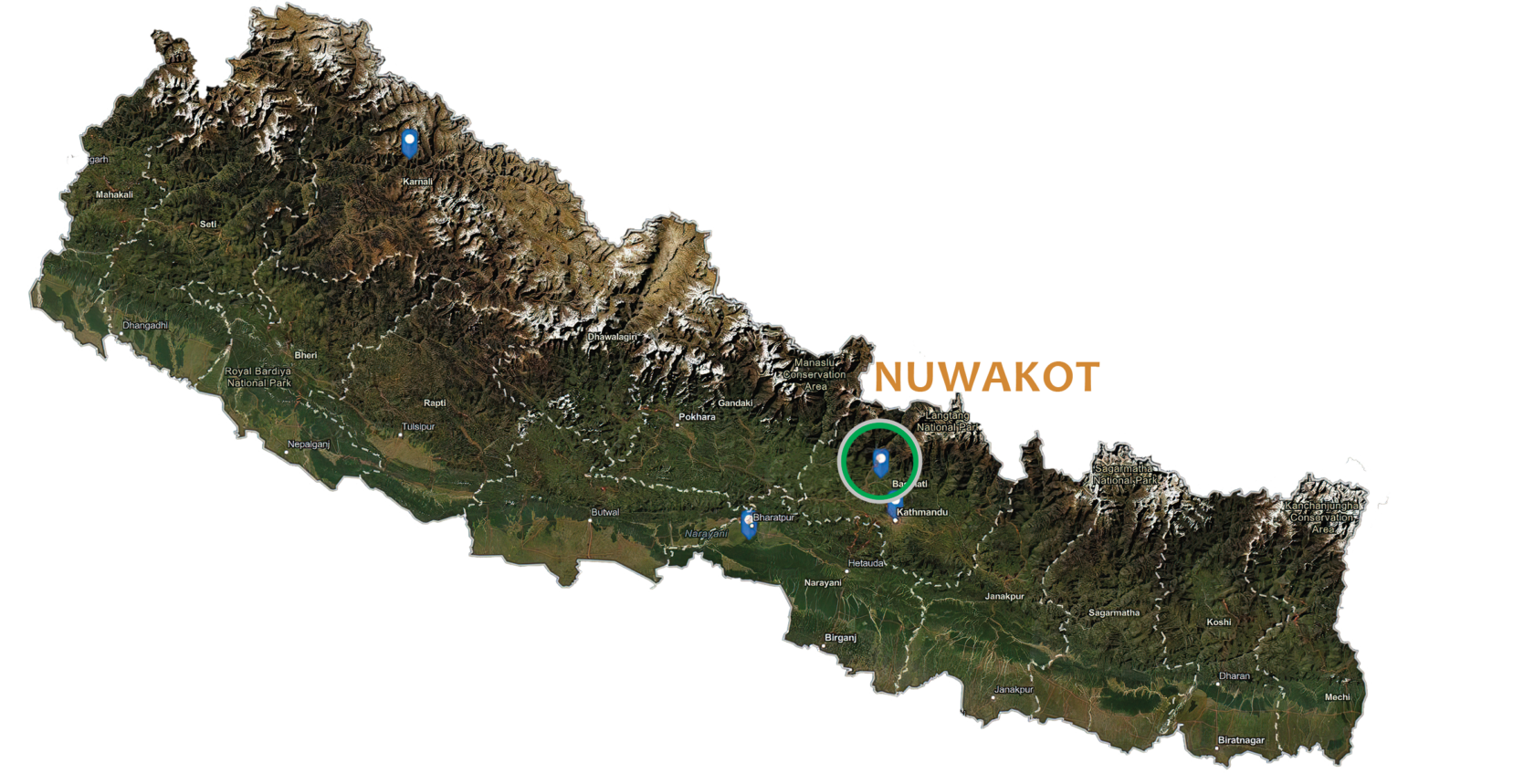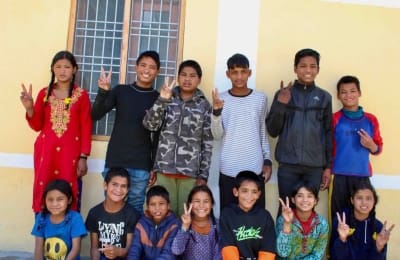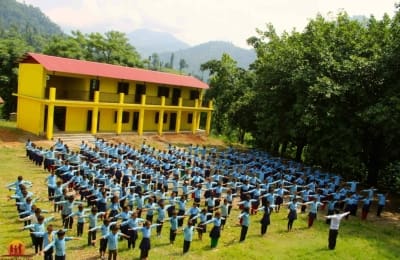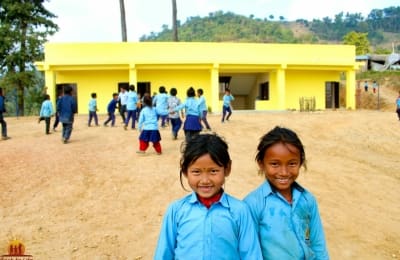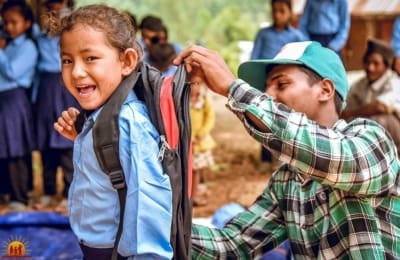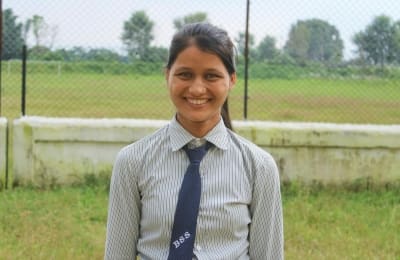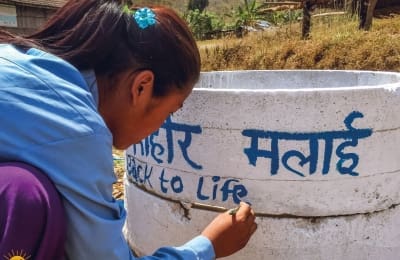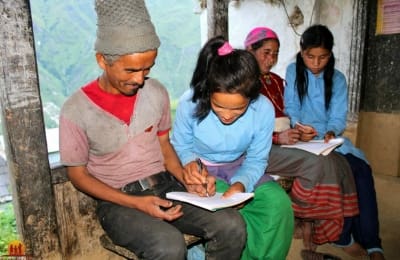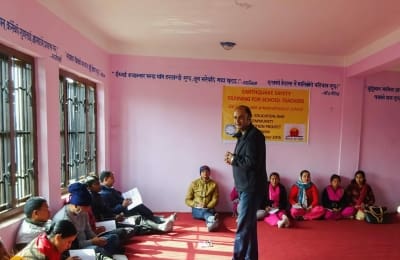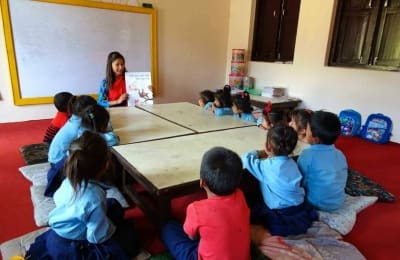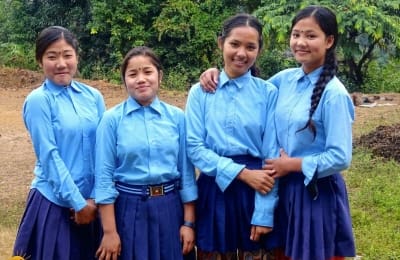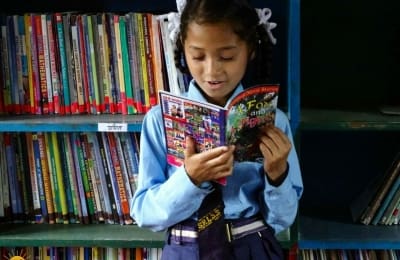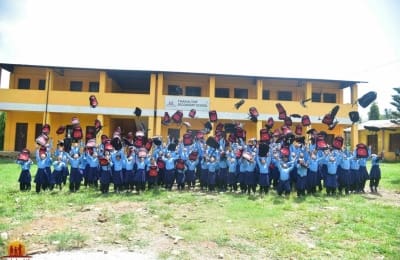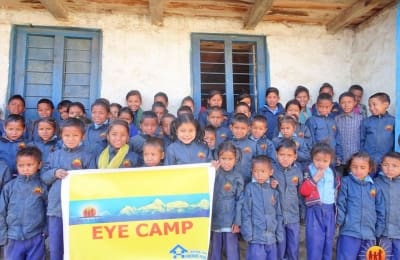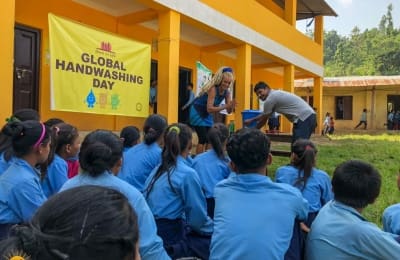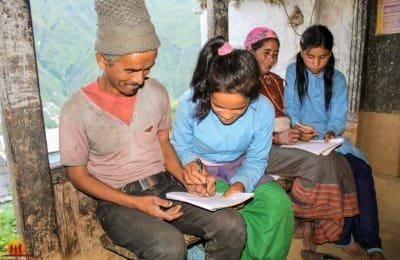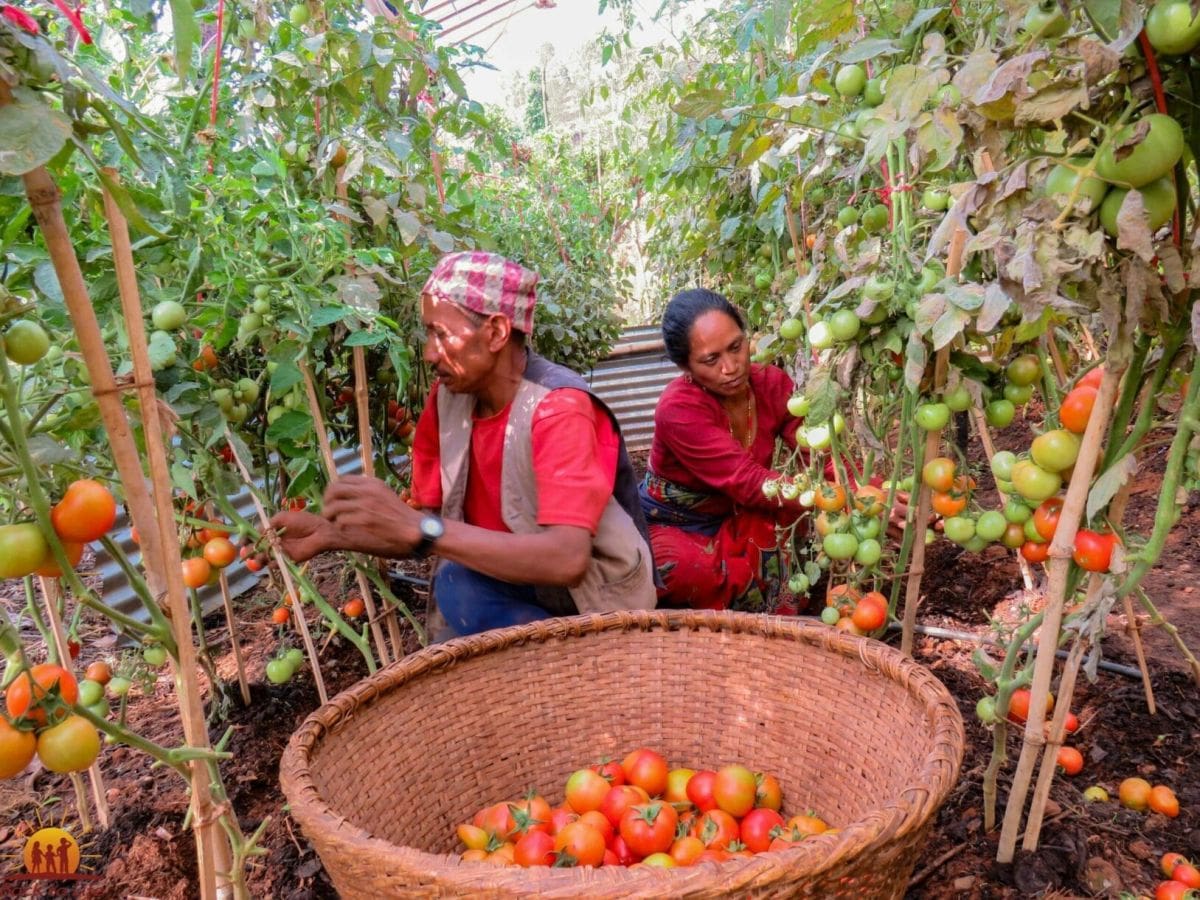
The harvest is ripe and the owners of the greenhouse, Kamal Tamang and his wife Khasmaya, can hardly believe their luck. The result is remarkable: the very first harvest yielded 80 kilos of tomatoes. Eight more harvests are possible until the early monsoon. After that, new seeds need to be sown. In the next 5 months Kamal can earn around 20,000 rupees (approx. 150 euros) with the tomatoes. A lot of extra money for the poor farm laborer. “We are now planning to plant cucumbers, pumpkins, cauliflowers and other vegetables …”, says Khasmaya and calculates that the family will gain an additional annual income of around 50,000 rupees (370 euros) in this way. This sum is roughly the savings of a whole year that a simple, poor wage worker can save for his family and send home. The greenhouse improves the family’s economic situation in the long term.
Grow it yourself – a benefit for people and the environment
Of the 80 households in the village of Bhaduwar in Nuwakot, only a handful of families initially joined the greenhouse project. But the quickly visible successes soon resulted in many imitators in the village. The need for fresh vegetables in the Nuwakot region is great as most farmers only plant millet, corn and wheat. Enormous quantities are delivered every day from other parts of Nepal – but also from India. Satisfying the demand with locally harvested vegetables that do not have to be transported across the country is a gain for people and the environment.
Money in the account and more on the plate
Kamal is completely convinced: “The cultivation and sale of tomatoes now enables us to easily buy other goods that we urgently need – such as salt, spices or cooking oil. But of course we now also have more fresh vegetables to eat ourselves. “ From now on, the savings will end up in a bank account. It is the first of his life. Kamal opened it up with the help of our teammates.
Organic cultivation with local seeds
When choosing the seeds and seeds, we make sure to use local seeds that are grown in Nepal. We also use organic fertilizers. We convey this to the smallholders in the training courses and continue to support them with advice.
